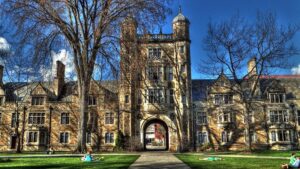To better ensure resident safety, the city of Hobbs, N.M., has deployed an artificial intelligence-based gun detection video analytics platform.
The Cybersecurity and Infrastructure Agency (CISA) has announced on Sept. 5 a “voluntary pledge” for K-12 education technology software developers and manufacturers to commit to creating products with a greater emphasis on cybersecurity built in.
The city of New Orleans is working with Mission Critical Partners (MCP) to overhaul New Orleans’ “critically antiquated” justice technology systems, and that will replace decades-old computer systems with cloud-based technologies.
The Oklahoma Broadband Office (OBO) has launched an interactive online map detailing availability of high-speed internet service throughout the state.
The nonprofit Center for Internet Security (CIS) has entered into a “strategic collaboration” with Microsoft to help bolster cybersecurity measures for state, local, tribal, and territorial (SLTT) organizations.
As part of the new academic year, schools across the state of Delaware will launch a new School Safety and Wellness Suite that the state says incorporates a comprehensive approach to alert administrators of serious situations while providing students with the necessary tools and resources to prevent or deter a situation from escalating.
Virginia State University (VSU) has announced it is the first university in the commonwealth to offer Wi-Fi 6E to its campus. According to a press release, VSU will upgrade both campus buildings and outdoor areas to offer Wi-Fi 6E. The school said that by deploying this latest generation technology it can “now offer instant access to a stable internet connection that wasn’t available in the past.”
University of Michigan’s Information and Technology Services (U-M ITS) is now offering its suite of generative artificial intelligence (GenAI) tools to the campus community.
The President’s National Infrastructure Advisory Council (NIAC) made a broad call last week for the creation of a National Water Strategy to ensure the nation can deliver sustainable critical infrastructure systems that are responsive to cyber threats.
The Labor Department (DoL) estimated this week that the overpayment rate for its Pandemic Unemployment Assistance (PUA) program reached 17 percent between March 2020 and September 2021 as the coronavirus pandemic gripped the nation.













